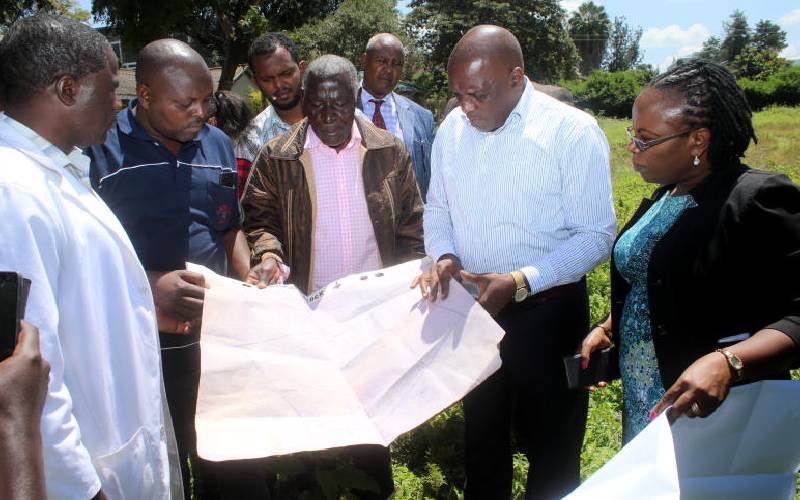×
The Standard e-Paper
Home To Bold Columnists

National Land Commission (NLC) chairman Muhammad Swazuri (second right), Nakuru County Lands, Housing and Physical Planning CEC Eng Lucy Kariuki (right) and Shabab Ward MCA Kamau Githengi (second left) inspecting a map of a piece of land belonging to Nakuru West Health center on August 10, 2018. [Kipsang Joseph, Standard]
The National Lands Commission (NLC) will in two weeks draw curtains on a tumultuous six-year term. As the commissioners make for the door, they leave behind a conflicted legacy.